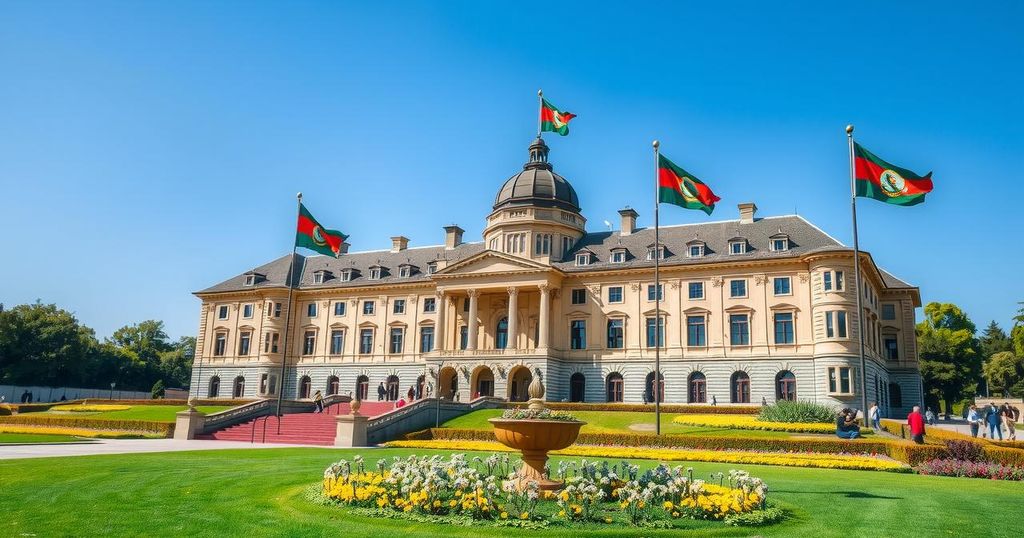Cameroon’s Parliament: The Cycle of Same Faces and Stagnation Continues
Marcel Niat Njifenji and Cavaye Yeguie Djibril have been re-elected as heads of the Senate and National Assembly in Cameroon, continuing a trend of political longevity and lack of competition. The CPDM orchestrates elections without real challengers, reinforcing a system where power is recycled rather than contested. This situation restricts meaningful political discourse and highlights the stagnation within Cameroon’s political landscape as the next presidential election approaches.
In a display of political continuity, Marcel Niat Njifenji and Cavaye Yeguie Djibril have been re-elected as leaders of Cameroon’s Senate and National Assembly, respectively. Mr. Djibril, at 84, has held his position since 1992, receiving 125 votes out of 137 without any challengers. Meanwhile, Mr. Njifenji, aged 90, has maintained his role since the Senate’s establishment in 2013, collecting 87 votes out of 90, highlighting the trend of political longevity over performance.
The Cameroon People’s Democratic Movement (CPDM/RDPC), which has been in power for over 40 years, orchestrates elections much like a scripted performance; members gather to confirm previously decided leaders, foreseeing an uncomplicated result well in advance. Such predetermined outcomes leave little room for genuine opposition, as candidates face no real competition, and dissenters are often relegated to silent compliance.
Mr. Djibril’s tenure features minimal legislative achievement and frequent absences due to medical trips, reinforcing perceptions of a National Assembly that predominantly serves President Paul Biya, who has ruled for 42 years. Similarly, Mr. Njifenji’s presiding role is characterized more by ceremonial duties than by active governance, turning the Senate into a refuge for aging party loyalists.
The opposition’s muted responses reflect their frustrations in a landscape dominated by the CPDM, where political discourse has devolved into a monotonous endurance test of lengthy sessions yielding no substantial change. With the 2025 presidential elections looming, Cameroon’s political dynamics appear fixed, perpetuating a system that favors the recycling of power and a demographic resistant to transformation, underscoring that power in this context is more often inherited than contested.
The recent re-elections of Marcel Niat Njifenji and Cavaye Yeguie Djibril underscore a troubling reality in Cameroon’s political framework characterized by entrenched leadership and a lack of meaningful competition. This continuous cycle highlights a political culture that favors longevity and loyalty over innovation and change. With looming elections, the opposition remains constrained and helpless within a securely controlled system, suggesting that future electoral outcomes are unlikely to deviate from historical trends of re-election and political stagnation.
Original Source: www.cameroon-concord.com




Post Comment